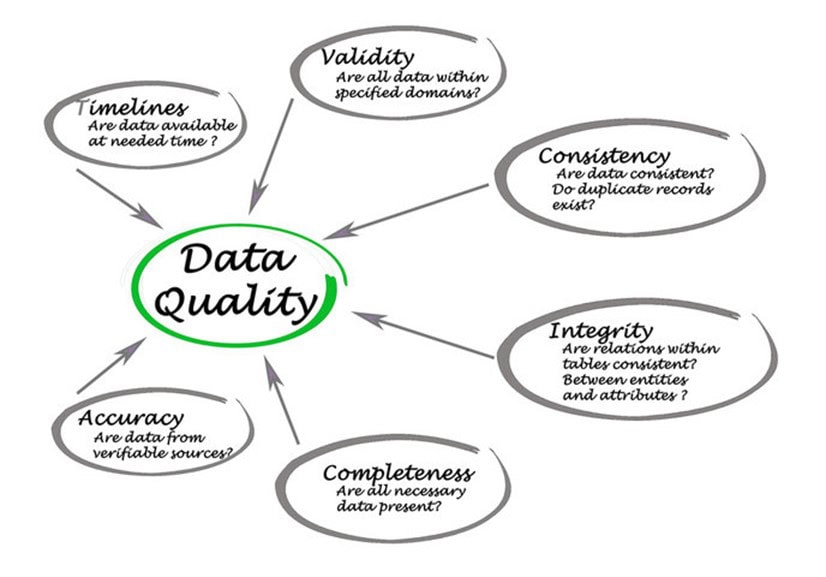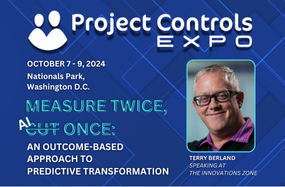
A Blueprint for Success: The Power of Data Diagnostics

As a co-founder of LoadSpring, and in my new capacity as the Chief of Staff to the Office of the CEO, I’ve had the opportunity to work on the front lines and in the C-Suite with some of the most sophisticated AEC companies in the world. What is becoming so abundantly clear to me is just how much basic intuition and gut-level decision making is having to be replaced by heavily quantified and supported data and analytics from next generation data and AI systems, because the costs of being wrong in this industry are just way too high. The quality and reliability of this data is crucial for generating meaningful insights and outcomes, and can mean the difference between just surviving and truly thriving in today’s marketplace. However, maintaining data integrity, which refers to the accuracy, completeness, consistency, and validity of data throughout its lifecycle, can be challenging and needs the right focus and partnerships to be successful.
Understanding the Importance of Data Diagnostics
Data diagnostics are essential for assessing the quality and integrity of project-related data. By conducting a comprehensive data diagnostic, organizations can identify and address issues that could otherwise hinder project success and contribute to erroneous decision making as a result of relying on inaccurate or insufficient data. This includes ensuring data cleanliness, reliability, and accuracy to facilitate better decision-making and improve project outcomes.

Data Cleanliness
Data cleanliness refers to the absence of errors, inconsistencies, and redundancies in data. Unclean data can stem from various sources, including manual data entry errors, outdated information, and inconsistent data formats. Such issues can lead to significant problems, such as miscommunication, incorrect project estimates, cost overruns, and scheduling conflicts.
Ensuring Data Reliability
Data reliability pertains to the consistency and dependability of data over time. In the AEC industry, where projects often span several years and involve multiple stakeholders, maintaining data reliability is critical. Inconsistent data can lead to confusion and misalignment among project teams, ultimately affecting project delivery.
Assessing Data Accuracy
Data accuracy is the degree to which data correctly reflects real-world entities and events. Inaccurate data can lead to flawed analyses, incorrect assumptions, and poor decision-making resulting in cost overruns, project delays, and safety hazards.
Implementing Data Governance
Data governance refers to the Company’s internal approach to managing the availability, usability, integrity, and security of data used in an enterprise. It involves establishing policies, procedures, and standards to ensure data is created, managed and used effectively across the organization. Data governance is crucial for maintaining high data quality and ensuring that data is an asset rather than a liability.

Enhancing Decision-Making
The ultimate goal of a data diagnostic is to enhance decision-making by ensuring that high-quality data is made available to the decision making process. In the AEC industry, where decisions can have significant financial and operational implications, having clean, reliable, and accurate data is crucial. Whether it’s estimating project costs, forecasting timelines, or assessing project risks, high-quality data enables more informed and confident decision-making.
Improving Project Outcomes
High-quality data directly contributes to better project outcomes. Clean, reliable, and accurate data allows for precise project planning, efficient resource allocation, and effective risk management. It also facilitates better communication and coordination among project stakeholders, reducing the likelihood of misunderstandings and errors.
Conclusion
By performing a data diagnostic and implementing robust data governance practices to address the identified gaps, AEC companies can ensure that their data meets the highest standards of quality. This not only improves the efficiency and effectiveness of project management but also enhances the overall success of projects, leading to better financial outcomes, higher client satisfaction and a stronger competitive edge in the market.
As the AEC industry continues to embrace digital transformation, the importance of high-quality data cannot be overstated, making data diagnostics and proper data governance indispensable tools for modern project management. At LoadSpring, we are here to assist you when you are ready to perform your data diagnostic. We have a quarter of a century of experience working with, processing, and analyzing terabytes of project-related data across hundreds of applications for the world’s leading project- and capital-intensive organizations. Contact us today to learn more.








